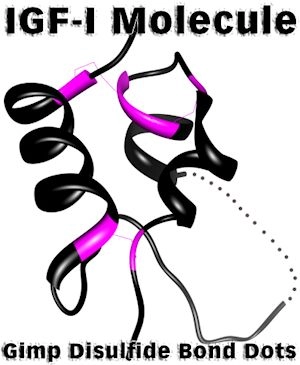Introduction
Testosterone Enanthate, a commonly prescribed form of testosterone replacement therapy (TRT), has been widely used to address hypogonadism in American men. While its benefits in improving muscle mass, bone density, and libido are well-documented, the impact of this therapy on metabolic parameters, particularly blood sugar levels, remains a topic of significant interest and concern. This article aims to explore the relationship between Testosterone Enanthate and glycemic control in American males, offering insights into its potential effects and implications for diabetic management.
The Role of Testosterone in Glucose Metabolism
Testosterone plays a crucial role in regulating various metabolic processes, including glucose metabolism. Research has indicated that testosterone can influence insulin sensitivity and glucose uptake in muscle cells. A decrease in testosterone levels, commonly seen in aging males, has been associated with an increased risk of developing insulin resistance and type 2 diabetes. Therefore, understanding how testosterone replacement therapy, such as Testosterone Enanthate, affects blood sugar levels is essential for optimizing patient care.
Clinical Studies and Findings
Several clinical studies have investigated the impact of Testosterone Enanthate on blood sugar levels. A notable study published in the *Journal of Clinical Endocrinology & Metabolism* found that men receiving Testosterone Enanthate experienced improvements in insulin sensitivity compared to a placebo group. This suggests that TRT may have a beneficial effect on glycemic control. However, the results are not universally consistent, and some studies have reported no significant changes in blood sugar levels following testosterone therapy.
Potential Mechanisms
The potential mechanisms through which Testosterone Enanthate might affect blood sugar levels are multifaceted. One proposed mechanism is the enhancement of insulin sensitivity through the activation of androgen receptors in muscle and fat tissue. Additionally, testosterone may influence the secretion of adipokines, such as adiponectin, which are known to improve insulin sensitivity. However, the exact pathways remain under investigation, and further research is needed to fully elucidate these mechanisms.
Implications for Diabetic Patients
For American men with diabetes, the use of Testosterone Enanthate requires careful consideration. While some studies suggest potential benefits in terms of improved insulin sensitivity, the overall impact on blood sugar control can vary among individuals. It is crucial for diabetic patients to monitor their blood sugar levels closely when starting or adjusting TRT. Collaboration with healthcare providers to tailor therapy and manage diabetes effectively is essential.
Monitoring and Management
Given the potential variability in response to Testosterone Enanthate, regular monitoring of blood sugar levels is recommended for all patients undergoing TRT. This includes both diabetic and non-diabetic individuals, as changes in insulin sensitivity can occur. Healthcare providers should also consider other factors that may influence glycemic control, such as diet, exercise, and concurrent medications.
Conclusion
The impact of Testosterone Enanthate on blood sugar levels in American men is a complex and evolving area of research. While some evidence suggests potential benefits in improving insulin sensitivity, the effects can vary among individuals. For diabetic patients, careful monitoring and management are crucial to ensure optimal glycemic control. As research continues to uncover the intricacies of testosterone's role in metabolism, healthcare providers must remain vigilant in tailoring TRT to meet the unique needs of each patient.
Contact Us For A Fast And Professional Response

- Testosterone Enanthate: Enhancing Athletic Performance and Associated Risks in American Athletes [Last Updated On: February 26th, 2025] [Originally Added On: February 26th, 2025]
- Tailoring Testosterone Enanthate Therapy for American Men's Health [Last Updated On: March 17th, 2025] [Originally Added On: March 17th, 2025]
- Testosterone Enanthate: Enhancing Muscle Growth and Weight Management in American Men [Last Updated On: March 18th, 2025] [Originally Added On: March 18th, 2025]
- Testosterone Enanthate: Long-Term Effects and Management in American Men [Last Updated On: March 18th, 2025] [Originally Added On: March 18th, 2025]
- Testosterone Enanthate: A Promising Treatment for Sexual Dysfunction in American Males [Last Updated On: March 18th, 2025] [Originally Added On: March 18th, 2025]
- Testosterone Enanthate: Impacts on Prostate Health and Monitoring Guidelines [Last Updated On: March 20th, 2025] [Originally Added On: March 20th, 2025]
- Testosterone Enanthate: Safety, Side Effects, and Management in Hormone Therapy [Last Updated On: March 20th, 2025] [Originally Added On: March 20th, 2025]
- Testosterone Enanthate: A Promising Treatment for Depression in American Men [Last Updated On: March 20th, 2025] [Originally Added On: March 20th, 2025]
- Testosterone Enanthate: Dispelling Myths and Presenting Facts for American Males [Last Updated On: March 20th, 2025] [Originally Added On: March 20th, 2025]
- Testosterone Enanthate: Cycle, Benefits, Risks, and Legal Considerations for Athletes [Last Updated On: March 20th, 2025] [Originally Added On: March 20th, 2025]
- Testosterone Enanthate: A Promising Therapy for Chronic Pain in American Males [Last Updated On: March 21st, 2025] [Originally Added On: March 21st, 2025]
- Testosterone Enanthate's Impact on Sleep Patterns in American Males: Effects and Management [Last Updated On: March 21st, 2025] [Originally Added On: March 21st, 2025]
- Testosterone Enanthate: A Promising Treatment for Osteoporosis in American Men [Last Updated On: March 22nd, 2025] [Originally Added On: March 22nd, 2025]
- Testosterone Enanthate's Impact on Cognitive Function in American Men: Recent Studies [Last Updated On: March 22nd, 2025] [Originally Added On: March 22nd, 2025]
- Testosterone Enanthate: Enhancing Immune Function in American Men [Last Updated On: March 22nd, 2025] [Originally Added On: March 22nd, 2025]
- Testosterone Enanthate: Impacts on Hair Growth and Loss in American Men [Last Updated On: March 22nd, 2025] [Originally Added On: March 22nd, 2025]
- Testosterone Enanthate Therapy: Benefits and Risks for Men Over 50 [Last Updated On: March 23rd, 2025] [Originally Added On: March 23rd, 2025]
- Testosterone Enanthate: A Promising Treatment for Anemia in American Men [Last Updated On: March 23rd, 2025] [Originally Added On: March 23rd, 2025]
- Testosterone Enanthate's Impact on Fertility in American Males: Risks and Management [Last Updated On: March 23rd, 2025] [Originally Added On: March 23rd, 2025]
- Testosterone Enanthate: Cost-Benefit Analysis for Hypogonadism Treatment in American Males [Last Updated On: March 23rd, 2025] [Originally Added On: March 23rd, 2025]
- Testosterone Enanthate's Impact on Mental Clarity in American Men: A Comprehensive Review [Last Updated On: March 24th, 2025] [Originally Added On: March 24th, 2025]
- Testosterone Enanthate Withdrawal: Symptoms, Management, and Long-term Health in American Men [Last Updated On: March 24th, 2025] [Originally Added On: March 24th, 2025]
- Testosterone Enanthate: Ethical Dilemmas in Medical and Non-Medical Use Among American Males [Last Updated On: March 24th, 2025] [Originally Added On: March 24th, 2025]
- Testosterone Enanthate: Enhancing Injury Recovery in American Males - Benefits and Risks [Last Updated On: March 24th, 2025] [Originally Added On: March 24th, 2025]
- Testosterone Enanthate's Impact on Cardiovascular Endurance in American Men: Risks and Benefits [Last Updated On: March 24th, 2025] [Originally Added On: March 24th, 2025]
- Testosterone Enanthate: A Promising Tool for Stress Management in American Men [Last Updated On: March 24th, 2025] [Originally Added On: March 24th, 2025]
- Testosterone Enanthate Therapy: Benefits, Risks, and Management for American Men [Last Updated On: March 25th, 2025] [Originally Added On: March 25th, 2025]
- Testosterone Enanthate's Impact on Eye Health in American Males: A Comprehensive Review [Last Updated On: March 25th, 2025] [Originally Added On: March 25th, 2025]
- Testosterone Enanthate: Enhancing Post-Surgical Recovery in American Men [Last Updated On: March 25th, 2025] [Originally Added On: March 25th, 2025]
- Testosterone Enanthate's Impact on Emotional Well-being in American Males: A Comprehensive Analysis [Last Updated On: March 25th, 2025] [Originally Added On: March 25th, 2025]
- Testosterone Enanthate: Cultural Perceptions and Masculinity in American Males [Last Updated On: March 25th, 2025] [Originally Added On: March 25th, 2025]
- Testosterone Enanthate Boosts Skin Elasticity in American Males: Study Finds [Last Updated On: March 25th, 2025] [Originally Added On: March 25th, 2025]
- Testosterone Enanthate Therapy: Enhancing Veterans' Health and Well-being [Last Updated On: March 26th, 2025] [Originally Added On: March 26th, 2025]
- Testosterone Enanthate: Effects on Muscle, Fat, and Body Composition in American Males [Last Updated On: March 26th, 2025] [Originally Added On: March 26th, 2025]
- Testosterone Enanthate: Combating Muscle Wasting in American Men [Last Updated On: March 26th, 2025] [Originally Added On: March 26th, 2025]
- Testosterone Enanthate: Enhancing Endurance in American Male Athletes - Benefits and Risks [Last Updated On: March 26th, 2025] [Originally Added On: March 26th, 2025]
- Testosterone Enanthate's Impact on Joint Health in American Men: Benefits and Risks [Last Updated On: March 26th, 2025] [Originally Added On: March 26th, 2025]
- Testosterone Enanthate: A Novel Approach to Managing Allergies in American Males [Last Updated On: March 26th, 2025] [Originally Added On: March 26th, 2025]
- Testosterone Enanthate: Enhancing Vitality in Aging American Men [Last Updated On: March 26th, 2025] [Originally Added On: March 26th, 2025]
- Testosterone Enanthate Therapy: Impacts on Kidney Function in American Males [Last Updated On: March 26th, 2025] [Originally Added On: March 26th, 2025]
- Testosterone Enanthate's Impact on Dental Health in American Males: A Comprehensive Review [Last Updated On: March 27th, 2025] [Originally Added On: March 27th, 2025]
- Testosterone Enanthate's Impact on Appetite and Digestion in American Men: A Comprehensive Analysis [Last Updated On: March 27th, 2025] [Originally Added On: March 27th, 2025]
- Testosterone Enanthate: Enhancing Respiratory Function in American Men [Last Updated On: March 27th, 2025] [Originally Added On: March 27th, 2025]
- Testosterone Enanthate: A Promising Treatment for Chronic Fatigue Syndrome in American Males [Last Updated On: March 27th, 2025] [Originally Added On: March 27th, 2025]
- Testosterone Enanthate: A Promising Strategy for Obesity Management in American Males [Last Updated On: March 27th, 2025] [Originally Added On: March 27th, 2025]
- Tailoring Testosterone Enanthate Dosages for American Males: A Comprehensive Guide [Last Updated On: March 28th, 2025] [Originally Added On: March 28th, 2025]
- Testosterone Enanthate Therapy: Impacts on Life Expectancy in American Men [Last Updated On: March 29th, 2025] [Originally Added On: March 29th, 2025]
- Testosterone Enanthate's Impact on Hearing in American Men: Current Research and Insights [Last Updated On: March 29th, 2025] [Originally Added On: March 29th, 2025]
- Testosterone Enanthate: A Promising Approach to Diabetes Management in American Males [Last Updated On: March 30th, 2025] [Originally Added On: March 30th, 2025]
- Testosterone Enanthate: A Promising Therapy for Autoimmune Disorders in American Males [Last Updated On: March 30th, 2025] [Originally Added On: March 30th, 2025]
- Testosterone Enanthate's Impact on Liver Health: Risks and Monitoring for American Men [Last Updated On: March 31st, 2025] [Originally Added On: March 31st, 2025]
- Testosterone Enanthate: A New Frontier in Treating Gastrointestinal Disorders in American Males [Last Updated On: April 2nd, 2025] [Originally Added On: April 2nd, 2025]
- Testosterone Enanthate: A Promising Therapy for Hypertension in American Males [Last Updated On: April 3rd, 2025] [Originally Added On: April 3rd, 2025]
- Testosterone Enanthate: Enhancing Neurological Function in American Men [Last Updated On: April 4th, 2025] [Originally Added On: April 4th, 2025]
- Testosterone Enanthate: Impacts on Male Fertility and Reproductive Health in American Males [Last Updated On: April 5th, 2025] [Originally Added On: April 5th, 2025]
- Testosterone Enanthate's Impact on Thyroid Function in American Men: A Comprehensive Analysis [Last Updated On: April 5th, 2025] [Originally Added On: April 5th, 2025]
- Testosterone Enanthate: Enhancing Musculoskeletal Health in American Men [Last Updated On: April 9th, 2025] [Originally Added On: April 9th, 2025]
- Testosterone Enanthate: Enhancing Hematological Health in American Men [Last Updated On: April 9th, 2025] [Originally Added On: April 9th, 2025]
- Testosterone Enanthate: A Promising Treatment for Respiratory Disorders in American Men [Last Updated On: April 9th, 2025] [Originally Added On: April 9th, 2025]
- Testosterone Enanthate's Impact on Immune Function in American Males: A Comprehensive Review [Last Updated On: April 9th, 2025] [Originally Added On: April 9th, 2025]
- Testosterone Enanthate's Impact on Adrenal Health in American Males: A Detailed Analysis [Last Updated On: April 9th, 2025] [Originally Added On: April 9th, 2025]
- Testosterone Enanthate's Role in Managing Metabolic Disorders in American Males [Last Updated On: April 10th, 2025] [Originally Added On: April 10th, 2025]
- Testosterone Enanthate: A New Frontier in Dermatological Treatment for American Men [Last Updated On: April 11th, 2025] [Originally Added On: April 11th, 2025]
- Testosterone Enanthate: Potential Neuroprotective Benefits for American Males with Neurological Disorders [Last Updated On: April 12th, 2025] [Originally Added On: April 12th, 2025]
- Testosterone Enanthate: Benefits, Risks, and Management for American Men's Health [Last Updated On: April 12th, 2025] [Originally Added On: April 12th, 2025]
- Testosterone Enanthate's Cardiovascular Impact on American Males: Risks and Recommendations [Last Updated On: April 13th, 2025] [Originally Added On: April 13th, 2025]
- Testosterone Enanthate's Impact on Gastrointestinal Health in American Males [Last Updated On: April 14th, 2025] [Originally Added On: April 14th, 2025]
- Testosterone Enanthate: A Promising Treatment for Musculoskeletal Disorders in American Males [Last Updated On: April 15th, 2025] [Originally Added On: April 15th, 2025]
- Testosterone Enanthate: Managing Endocrine Disorders in American Males [Last Updated On: April 17th, 2025] [Originally Added On: April 17th, 2025]
- Testosterone Enanthate Therapy: Impacts on Male Reproductive Health and Fertility [Last Updated On: April 18th, 2025] [Originally Added On: April 18th, 2025]
- Testosterone Enanthate: Enhancing Metabolic Health in American Males [Last Updated On: April 18th, 2025] [Originally Added On: April 18th, 2025]
- Testosterone Enanthate's Impact on Skin Health in American Males: Benefits and Risks [Last Updated On: April 18th, 2025] [Originally Added On: April 18th, 2025]
- Testosterone Enanthate's Role in Enhancing Immune Function in American Men [Last Updated On: April 18th, 2025] [Originally Added On: April 18th, 2025]
- Testosterone Enanthate's Impact on Respiratory Health in American Males: Benefits and Risks [Last Updated On: April 18th, 2025] [Originally Added On: April 18th, 2025]
- Testosterone Enanthate's Impact on Gastrointestinal Health in American Men: A New Frontier [Last Updated On: April 19th, 2025] [Originally Added On: April 19th, 2025]
- Testosterone Enanthate Therapy: Cardiovascular Benefits and Risks for American Men [Last Updated On: April 20th, 2025] [Originally Added On: April 20th, 2025]
- Testosterone Enanthate: Emerging Treatment for Hematological Disorders in American Men [Last Updated On: April 20th, 2025] [Originally Added On: April 20th, 2025]

















